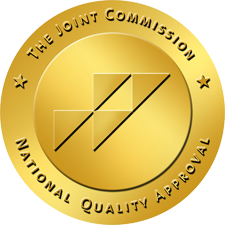
1) What is heart failure?
Heart Failure does not mean the heart has stopped working, rather the heart’s pumping power is weaker than normal. With heart failure, blood moves through the heart and body at a slower rate, and pressure in the heart increases.
2) Who is at risk for developing heart failure?
Risk factors for heart failure include:
- Previous heart attacks
- Coronary artery disease
- High blood pressure (Hypertension)
- Irregular heartbeat (Arrhythmia)
- Heart valve disease (especially of the aortic and mitral valves)
- Cardiomyopathy (disease of the heart muscle)
- Congenital heart defects (defects you are born with)
3) What are the Symptoms of Heart Failure?
Symptoms are related to the changes that occur to your heart and body, and may be moderate to severe, depending on how weak your heart is. You may have one or all of these symptoms or none at all.
The symptoms may include:
- Congested Lungs: Fluid back up in the lungs can cause shortness of breath with exercise or difficulty breathing at rest which is often worse when lying flat in bed. Lung congestion can also cause a dry, hacking cough or wheezing.
- Fluid & Water Retention: Reduced blood to your kidneys causes fluid and water retention, resulting in swollen ankles, legs, and abdomen (called edema) and weight gain. Symptoms may cause an increased need to urinate during the night. Bloating in your stomach may cause a loss of appetite or nausea.
- Dizziness, Fatigue, & Weakness: Reduced blood to your major organs & muscles makes you feel tired and weak. Reduced blood to the brain can cause dizziness or confusion.
- Rapid or Irregular Heartbeats: The heart beats faster to pump enough blood to the body. This can cause a fast or irregular heartbeat.
4) Is There a Cure For Heart Failure?
No. Early diagnosis and proper treatment can slow the progression of Disease.
5) What Symptoms Warrant a Call to my Doctor?
If you have Heart Failure or any unusual symptoms, do not wait until your next appointment to discuss them with your doctor. Call your physician immediately if you have:
- Unexplained weight gain – 2 pounds in one day or 5 pounds in one week.
- Swelling: ankles, feet, legs, or abdomen that has become worse.
- Shortness of breath that has become worse or occurs more often.
- A feeling of fullness (bloating) in your stomach with a loss of appetite or nausea.
- Extreme fatigue or decreased ability to complete daily activities.
- A respiratory (lung) infection or a cough that has become worse.
- Fast heart rate (above 100 beats per minute, or as directed by your doctor).
- New irregular heartbeat.
- Chest pain or discomfort during activity that is relieved with rest.
- Difficulty breathing during regular activities at rest.
- Changes in sleep patterns, including difficulty sleeping or feeling the need to sleep a lot more than usual.
- Decreased urination.
- Restlessness or confusion.
- Constant dizziness or lightheadedness.
- Nausea or poor appetite.
6) When Should I Seek Emergency Care for Heart Failure?
Go to your local emergency department or call 911 if you have:
- New chest pain or discomfort that is severe, unexpected and occurs with shortness of breath, sweating, nausea, or weakness.
- Fast heart rate (more than 120 – 150 beats per minute, or as directed by your doctor) – especially if you are short of breath.
- Shortness of breath not relieved by rest.
- Sudden weakness or paralysis (inability to move) in your arms or legs.
- Sudden onset of a severe headache.
- Fainting spell with loss of consciousness.
7) What can I do to control my Congestive Health Failure?
Follow the treatment plan prescribed by your physician. This will include taking your medication(s) as prescribed and following diet restrictions, such as avoiding salt and high salt foods.
8) Is exercise good for me?
Always discuss your exercise plans with you physician. Remember to rest between activities and pace yourself when exercising – stopping immediately if you experience chest pain or become short of breath.
9) If I experience shortness of breath at night, what can I do?
Sitting up in a recliner or sleeping on 2–3 pillows may help.
10) How often should I weigh myself?
Monitoring your weight will help identify increase in fluid retention. Remember to weight yourself on the same scale every morning before you eat or go to the bathroom.



